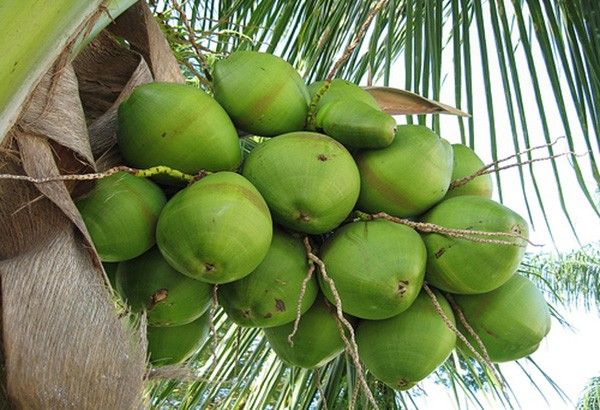Coconut farmers willing to withdraw petition vs coco levy EOs
January 11, 2017 | 7:44pm

The coco levy fund amounting to P75 billion were taxes imposed on coconut farmers mandated by Presidential Decree 755 in 1975.
File
MANILA, Philippines — The country’s coconut farmers are set to withdraw their petition filed before the Supreme Court (SC) which resulted in a temporary restraining order (TRO) on the utilization of the P75-billion coconut levy fund.
The Confederation of Coconut Farmer’s Organizations of the Philippines (CONFED) has announced that they are willing to take the necessary steps to withdraw their petition, which was said to be directed against the previous administration.
"We believe that we have at last a government that means business for the benefit of coconut farmers and the development of the industry. We are willing to withdraw our petition before the court to give PCA (Philippine Coconut Authority) a freer hand in governance," CONFED executive director and spokesperson Charlie Avila said.
The coco levy fund amounting to P75 billion were taxes imposed on coconut farmers mandated by Presidential Decree 755 in 1975.
The taxes were supposed to be used for the construction of projects designed for the benefit of coconut farmers but were instead used to buy a large percentage of the bank now known as the United Coconut Planters Bank under Danding Cojuangco.
Avila noted that the CONFED has full support and trust to the current administration as to the disposition and PCA’s legal mandate to manage the fund for the development of the local industry.
"Our government then may not now just do with the funds as it pleases because the funds do not belong to the general funds. They are special funds. Nor even can the farmers claim the funds in an absolute sense of ownership to do with as they please because these funds that came from them are still theirs only for a given purpose. The precise nature of these funds is therefore one of dual ownership," Avila explained.
In 2015, the SC has stopped the implementation of Executive Orders (EO) 179 and 180 of former President Benigno Aquino III aimed at managing the coco levy fund.
EO 179 provides for the inventory, privatization and transfer coco levy assets in favor of the government. EO 180, meanwhile, mandates the transfer of the fund to the government for an "Integrated Coconut Industry Roadmap Program."
"The coconut industry is one of the major industries that support the national economy. It is the state’s concern to make it strong and secure source not only of the livelihood of a significant segment of the population, but also export earnings the sustained growth of which is one of the imperatives of economic stability," CONFED Chairman Efren Villasenor said.
Meanwhile, PCA Administrator Avelino Andal welcomed the decision of the coconut farmers to withdraw their petition.
"I am extremely happy for the coco farmers and the industry that it serves with the development that one of the seemingly major stumbling block to the early disposition of coco levy fund is hopefully and finally resolved with the CONFED declaration of withdrawal of the TRO," Andal said.
"With this development, President Duterte can now dispose without much legal impediment considering that he promised the electorate, the farmers in particular, that he will release the coco levy fund," he added.
Furthermore, Avila emphasized that the fund must be regarded as public trust funds because they were the result of taxation.
The CONFED is the unified group of coconut farmers’ organizations nationwide which is composed of the Philippine Association of Small Coconut Farmer’s Organizations, the Pambansang Koalisyon ng mga Samahang Magsasaka at Manggagawa sa Niyugan and the Coconut Producer’s Federation. It represents more than 95 percent of the organized coconut farmers sector in the country.
BrandSpace Articles
<
>
- Latest
- Trending
Trending
Latest
Trending
Latest
Recommended
























